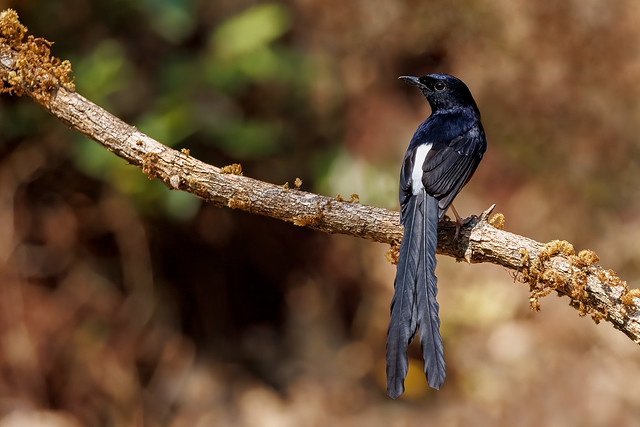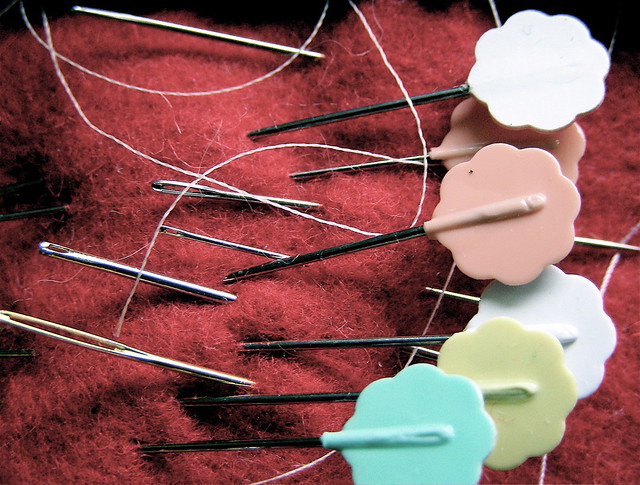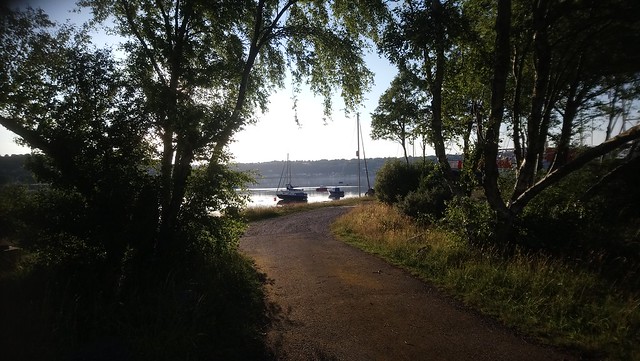Words for shell and related things in Celtic languages.
Words marked with a * are reconstructions.
| Old Irish (Goídelc) | bláesc = shell, nutshell, eggshell |
|---|---|
| Middle Irish (Gaoidhealg) | bláesc, blosc, plaesc = eggshell, nutshell, cataract (?) |
| Irish (Gaeilge) | blaosc / plaosc [bˠlˠiːsˠk / pˠl̪ˠeːsˠk] = shell (of eggg, but, crustacea) blaosc an chinn / an chloiginn = skull, cranium blaosc an aeir = the vault of heaven blaoscach = shelly, big-, empty-, headed blaoscán = eggshell, skull, cranium, drain, nip blaoscrúisc = scalp |
| Scottish Gaelic (Gàidhlig) | plaosg [pl̪ˠɯːsg] = hull, husk, pod, peel, rind, (egg)shell, crust, skull; peeling, skinning, husking, shelling plaosgadh [pl̪ˠɯːsgəɣ] = peeling, skinning, husking, shelling plaosgach [pl̪ˠɯːsgəx] = shelled, husky, shelly |
| Manx (Gaelg) | bleayst = shell, hull, husk, shield, body, crust, gill cover, pod bleayst shligganagh = tortoise shell bleaystan(ey) = bomb, shell bleaystagh = detonating, explosive, husked, shelled bleaystaghey = to shell, unhusk |
| Middle Welsh (Kymraec) | plisc(yn), plisg(in) = shell(s), pod(s), husk(s), rind, skin(s) plisco = to shell, peel |
| Welsh (Cymraeg) | plisg(en/yn) [plɪsɡ] = shell(s), pod(s), husk(s), rind, skin(s), membrane; speech impediment, cataract, scab plisgaf, plisgo = to shell, husk, peel plisgynnog = having a shell, skin or husk |
| Middle Cornish (Cernewec) | pliscin = eggshell plisg = husk, shell, paring |
| Cornish (Kernewek) | plisk(en) = shell(s), husk(s) |
| Middle Breton (Brezonec) | plusq(uenn) = peeling(s), skin(s), husk(s), shell(s), hull(s), eggshell(s) plusqad = peelings plusqua = to peel |
| Breton (Brezhoneg) | plusk(enn) = peeling(s), shaving(s), shell(s), pod(s), bark(s) pluskadur = peeling pluskan, pluskañ [ˈplyskã] = to peel pluskennek = to fluff |
Etymology: possibly related to peluche (plush [toy], fluff) in French and plush in English, which come Vulgar from Latin *pilūc(i)cāre (to remove parts of sth), from Latin pilāre (to remove hair), from pilus (hair) the Proto-Indo-European *pilo- (hair) [source].
Other words from the same roots include pelo (hair) in Spanish, poil (hair) in French and pelare (to pluck, skin, shear, peel) in Italian [source].
| Proto-Celtic | *sleg = shell (?) *sleggio = shell (?) |
|---|---|
| Old Irish (Goídelc) | slice = shell |
| Middle Irish (Gaoidhealg) | slice = shell slicén, sligen = shell |
| Irish (Gaeilge) | slige [ˈʃl̠ʲɪɟɪ] = shell, shard, melting pot sligeach = shells, place abounding in shells sliogán [ʃlʲəˈɡɑ̃ːn̪ˠ] = shell sliogán mara = scallop; seashell sliogánach = testacean, shelled, testaceous, abounding in shells, dappled, mottled |
| Scottish Gaelic (Gàidhlig) | slige [ʃl̪ʲigʲə] = shell, hull (of a boat) sligean [ʃl̪ʲʲigʲan] = small shell, small hull, small drinking shell, small shard sligeach [ʃl̪ʲigʲəx] = carapace, casing, case, crustacean, having a shell sligeanach [ʃl̪ʲigʲanəx] = tortoise |
| Manx (Gaelg) | shlig = shell, scale, body shliggan = shell, bomb shligganaghey = testaceous, tortoise shligganaghey = bomb, bombard |
Etymology: from Proto-Indo-European *slak- (to hit, strike, throw) [source]. The town and county of Sligo (Sligeach and Contae Shligigh in Irish), get their name from the Irish word sligeach [source]..
| Proto-Celtic | *krok-enā = (?) |
|---|---|
| Scottish Gaelic (Gàidhlig) | creachann [krʲɛxən̪ˠ] = scallop creachag [krʲɛxag] = scallop shell, drinking shell creachannach [krʲɛxən̪ˠəx] = abounding in scallops, scalloped |
| Manx (Gaelg) | craghan = scallop |
| Middle Welsh (Kymraec) | cregyn, cragen, cregin, krogen = shell, framework, husk |
| Welsh (Cymraeg) | cragen, crogen [ˈkraɡɛn / ˈkrɔɡɛn] = shell, framework, husk cragenbysg, crogenbysg = shellfish cragenfaen, crogenfaen = pearl cragennu = to form into a shell, become a shell cregynna [krɛˈɡəna] = to gather shells |
| Old Cornish | crogen = shell |
| Middle Cornish (Cernewec) | crogen, crogan = shell crogen an penn = skull |
| Cornish (Kernewek) | krogen = shell krogen benn/bedn = skull krogen brierin / Sen Jamys = scallop krogen benn/bedn = clam |
| Middle Breton (Brezonec) | creguin, croguen = shell croguennec = hooked |
| Breton (Brezhoneg) | kregen = shells krogenn [ˈkroː.ɡɛn] = shell, carapace kroegennan, kroegennañ = to shell kroegennek = hooked |
Etymology: unknown. Related to cregen (clay vessel) and cragen (potsherd) in Welsh, and possibly conch in English [source].
| Old Irish (Goídelc) | mocol = cluster, husk, mesh, shell |
|---|---|
| Middle Irish (Gaoidhealg) | mocol, mogal = mesh, network, web, globe, sphere, round mass, husk, shell, pid, troop, band |
| Irish (Gaeilge) | mogall [ˈmˠɔɡəl̪ˠ] = mesh, husk, shell, pod, compacy body, cluster of people mogallach = meshed, reticular, clustered mogallaigh = to (en)mesh, cluster mogallóir = mesh-rod (for measuring) mogallsúileach = goggle-eyed |
| Scottish Gaelic (Gàidhlig) | mogal [mogəl̪ˠ] = husk, shell, skin, mesh |
| Manx (Gaelg) | moggyl = grid, mesh, network mogglagh = meshed, networklike eddyr-voggyl = internet |
| Proto-Brythonic | *magl = trap, snare |
| Middle Welsh (Kymraec) | magl, magyl = trap, snare maglyt, maglu, meglyt = to snare, net, enmesh |
| Welsh (Cymraeg) | magl [ˈmaɡal] = snare, noose, trap, gin, manacle, fetter; obstruction, obstacle, cataract maglu, maglo = to snare, net, enmesh magledig = ensnaring, entrapping, caught, ensnared, trapped |
| Old Cornish | maglen = trap, snare |
| Middle Cornish (Cernewec) | maglen = snare, halter, spring |
| Cornish (Kernewek) | maglen = trap, gear maglenna, magledna = to change gear, tangle, trap magli = to tangle |
| Old Breton (Brethonoc) | maclou = slime (?) |
Etymology: from Latin macula (mesh), from Proto-Italic *smatlom, from Proto-Indo-European *smh₂-tló-m (wiping [?]) [source]. Words from the same roots include (chain) mail in English, macchia (stain, smear, spot) in Italian, maquis (thicket, resistance, underground) in French, and Makel (flaw, blemish) in German [source].
Sources: Wiktionary, Am Faclair Beag, Online Manx Dictionary, Teanglann.ie, eDIL – Electronic Dictionary of the Irish Language, In Dúil Bélrai English – Old Irish glossary, An Etymological Dictionary of the Gaelic Language, Geiriadur Prifysgol Cymru, Gerlyver Kernewek, Dictionaire Favereau, TermOfis, English – ProtoCeltic WordList (PDF), Etymological Dictionary Of Proto Celtic











